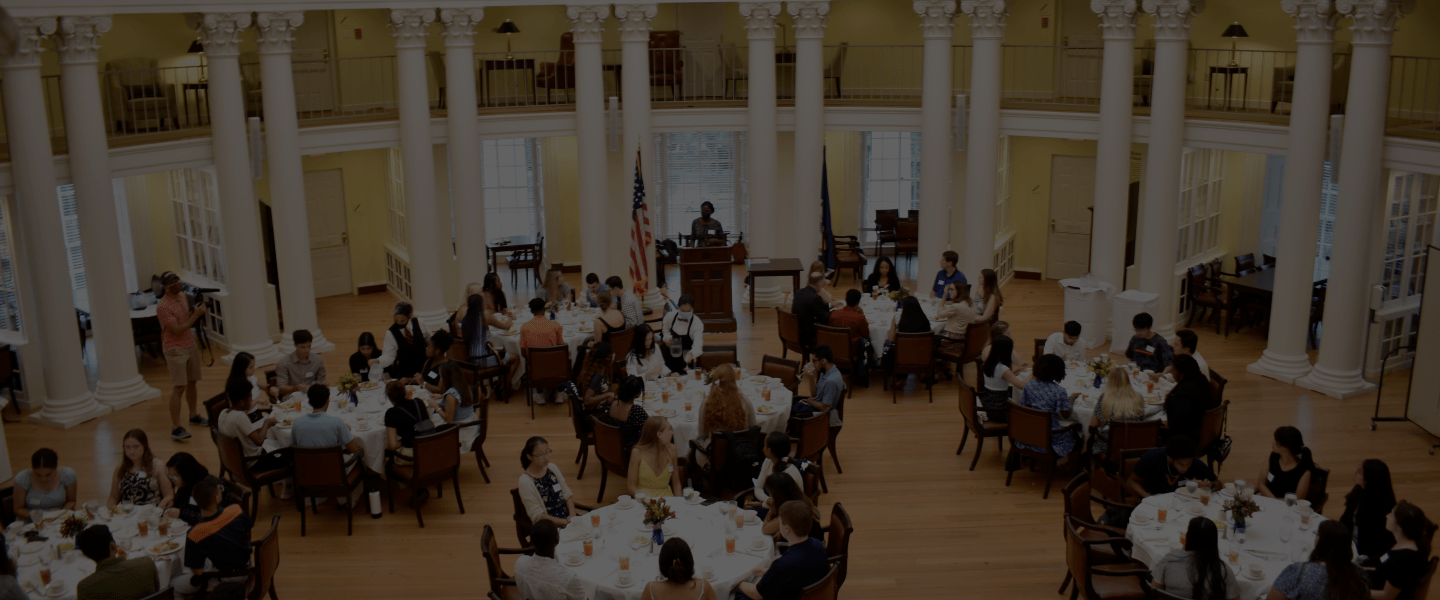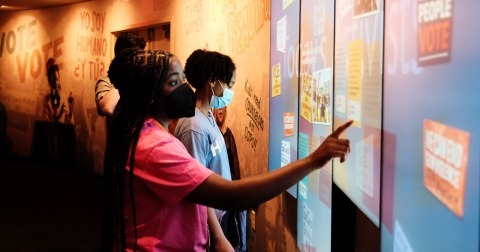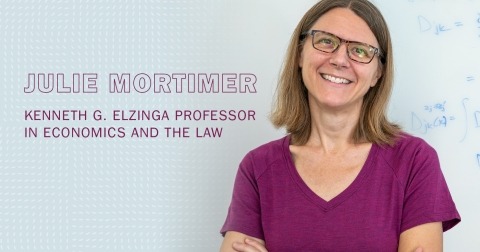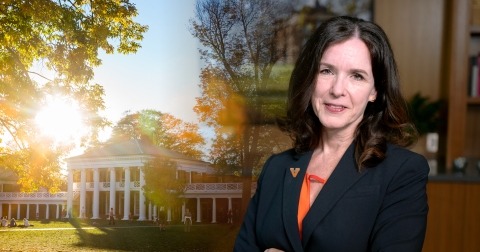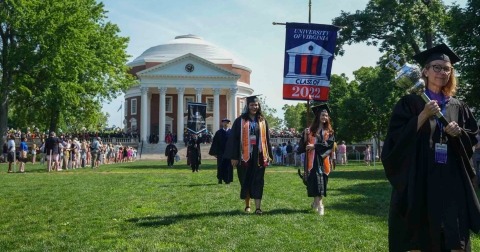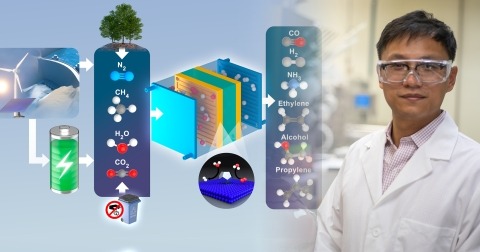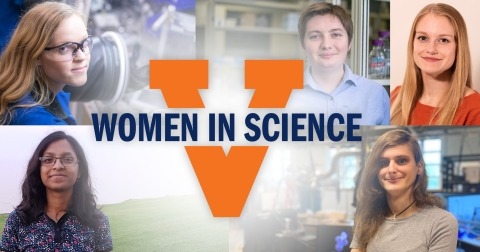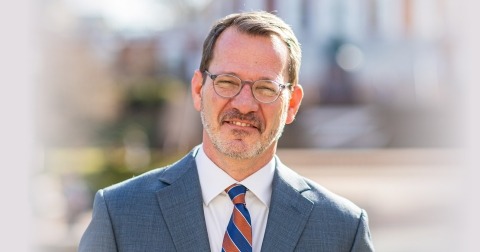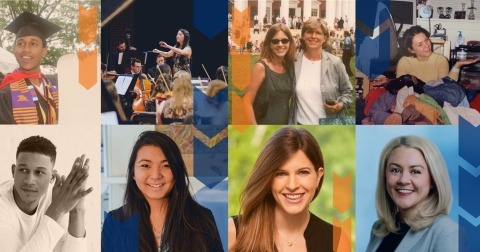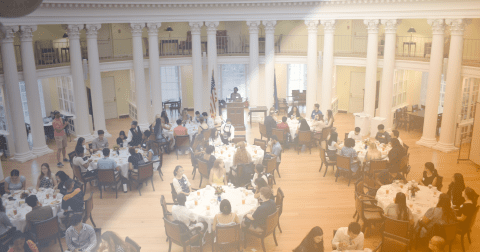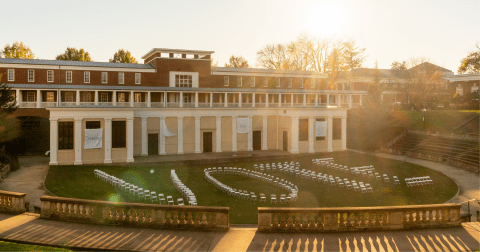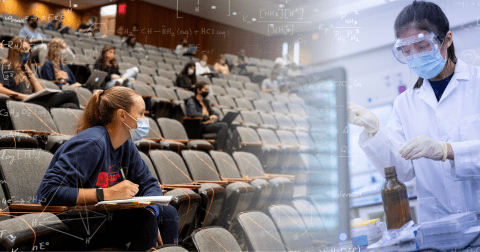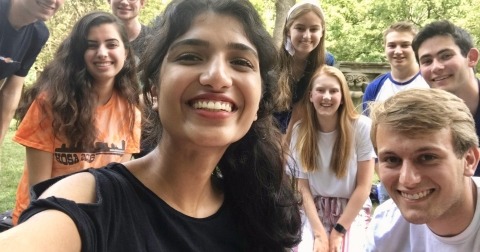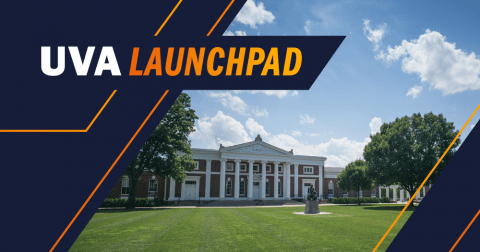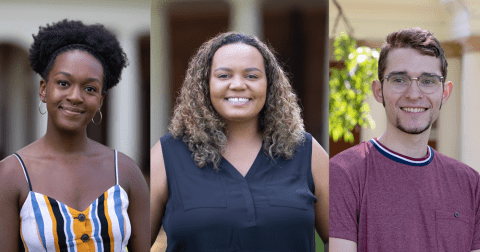On the list of popular ways to spend the summer, doing math problems usually ranks pretty low. But for recent high school graduates who are interested in science, technology, engineering and math (STEM) and who are worried about making the leap into university life, a new program that takes a team approach to solving college-level math challenges might be just the thing to take some of the anxiety out of the transition.
Now in its third year, Cavalier Online Experiences, or CONEX, hosted by the University of Virginia’s College of Arts & Sciences, is an online program designed to strengthen the quantitative skills incoming first years will need to succeed in college-level courses. CONEX was designed for students who, without a traditional college preparatory background, often drop out of STEM pursuits and sometimes out of college altogether.
CONEX students celebrated the completion of their summer program with a Rotunda dinner and awards ceremony.
Jim Rolf, the director of the program and an associate professor in the Department of Math, launched CONEX in the summer of 2019 after creating something similar as an instructor at Yale University. His objective was to broaden the pool of talented STEM students by providing an opportunity for underrepresented students to strengthen their quantitative skills and develop a sense of community before even stepping on Grounds for their first class.
“The role of CONEX is to help on the retention side. Once we know they’re coming, we want them to hit the ground running, and we want them to flourish in their first year here,” Rolf said.
The summer before she started at UVA, Samira Samadi was struggling with anxiety about whether she had made the right choice.
“I had heard that you have to completely change how you study and that it's completely different from high school,” Samadi said. She was good at math, she explained, but she wasn’t sure if she was good enough.
When she was invited to take part in CONEX last summer, she accepted, thinking it could put some of her fears to rest.
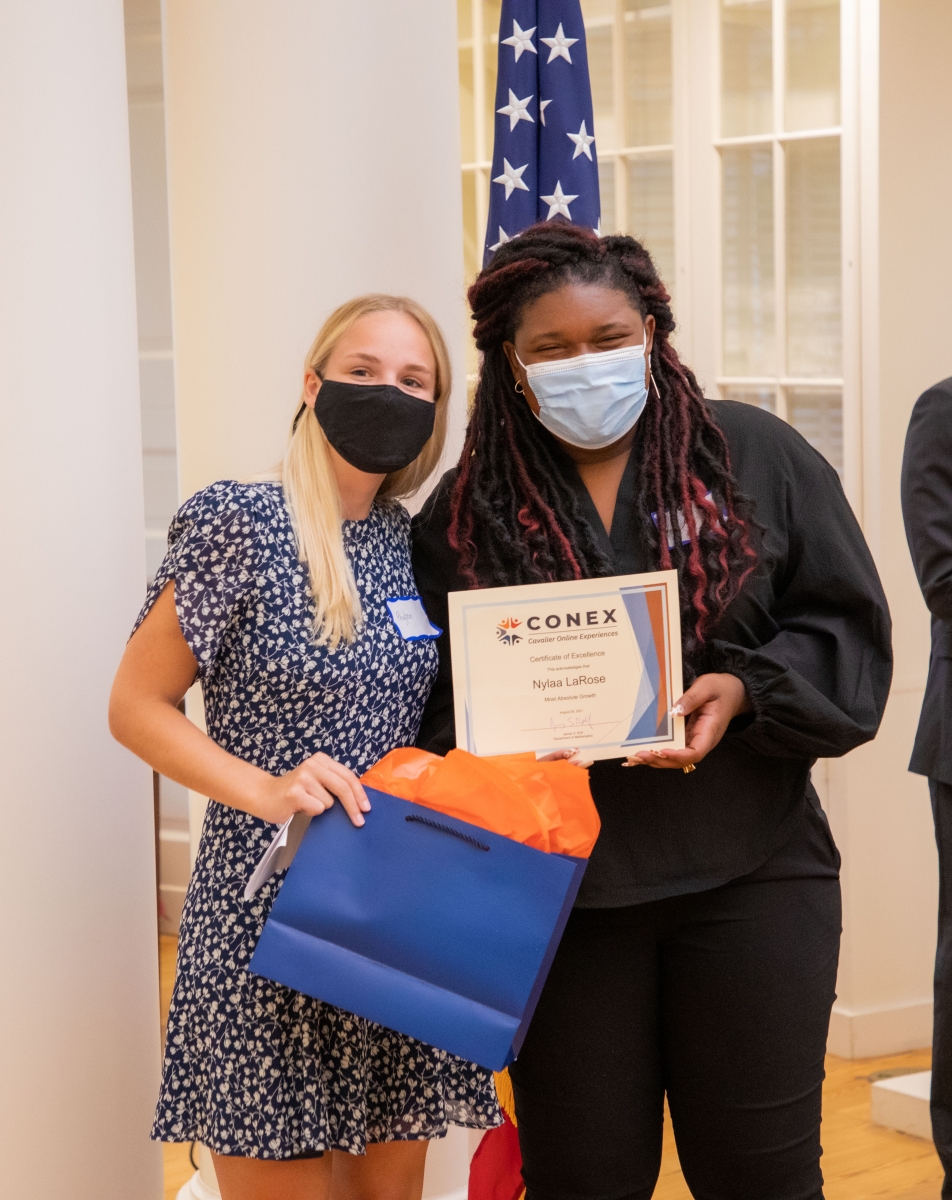 The CONEX awards dinner was an opportunity to celebrate all of the students who participated and to honor those who excelled in the program.
The CONEX awards dinner was an opportunity to celebrate all of the students who participated and to honor those who excelled in the program.
Designed to take place entirely online, the program makes it easy for incoming first-year students to participate without giving up their summer jobs or family obligations. Students begin CONEX in mid-June and meet twice each week for two months with an undergraduate coach and a small group of other incoming students to tackle a series of math-related challenges that they’re likely to encounter in college courses. Students don’t receive credit for the program, but an online portal allows them to compete for points and earn badges as they complete challenges.
“The applications were really applicable to certain classes that I was interested in like chemistry, physics, and other STEM courses,” Samadi said. “My coach helped me navigate different ways of approaching problems, breaking them down and looking at them in a different way, and when I took calculus, I thought it was really interesting that I could use some of what I learned from CONEX.”
But Samadi’s concerns about her transition to UVA weren’t just about her math skills. As a first-generation college student from a low-income family and for whom English is a second language, Samadi described her anxiety as “imposter syndrome.”
“I come from a different background,” Samadi said. “Some students come from really nice high schools, and they have impressive backgrounds in math and science. It makes you feel like you don’t know enough and you’re not going to succeed.”
It’s an anxiety that many of the students in the program share.
Josipa Roksa, a director of strategic academic programs with the Office of the Executive Vice President and Provost, understands the students’ fears. Roksa is a sociologist who studies higher education with a focus on student success and equity and evaluates programs like CONEX to understand their impact. "Like other institutions, we lose students from STEM, particularly our marginalized groups, first-generation and low-income students as well as racial and ethnic minorities,” Roksa said. "For STEM students in particular, performance and experience in math is not just related to G.P.A. but to whether they see themselves as being ready for UVA and whether they feel like they belong.”
To help address those concerns, the program also provides an introduction to life at UVA and helps students meet others who share common interests and experiences. When the fall semester begins, the CONEX participants have confidence in their skills and know that they’re not alone.
“This is a very small intervention that can have a lifelong impact,” Rolf said. “For most students, this is their first academic experience at UVA, and the reality is that if we can change their vector ever so slightly, it increases their success in their first semester, and if they’re successful in their first semester, they're more likely to succeed in their first year, and we know that has tremendous impact downstream. It changes the dynamics of what's possible for our students."
There’s already evidence that the CONEX strategy of pairing math with networking and team building is doing just that.
“The results have been very promising,” Roksa said. "Students get a pre-test when they start and they get a post-test after they finish, and what we see are pretty remarkable gains in their quantitative skills over the summer. And students who started the summer with the least amount of knowledge actually gained the most. That's very exciting."
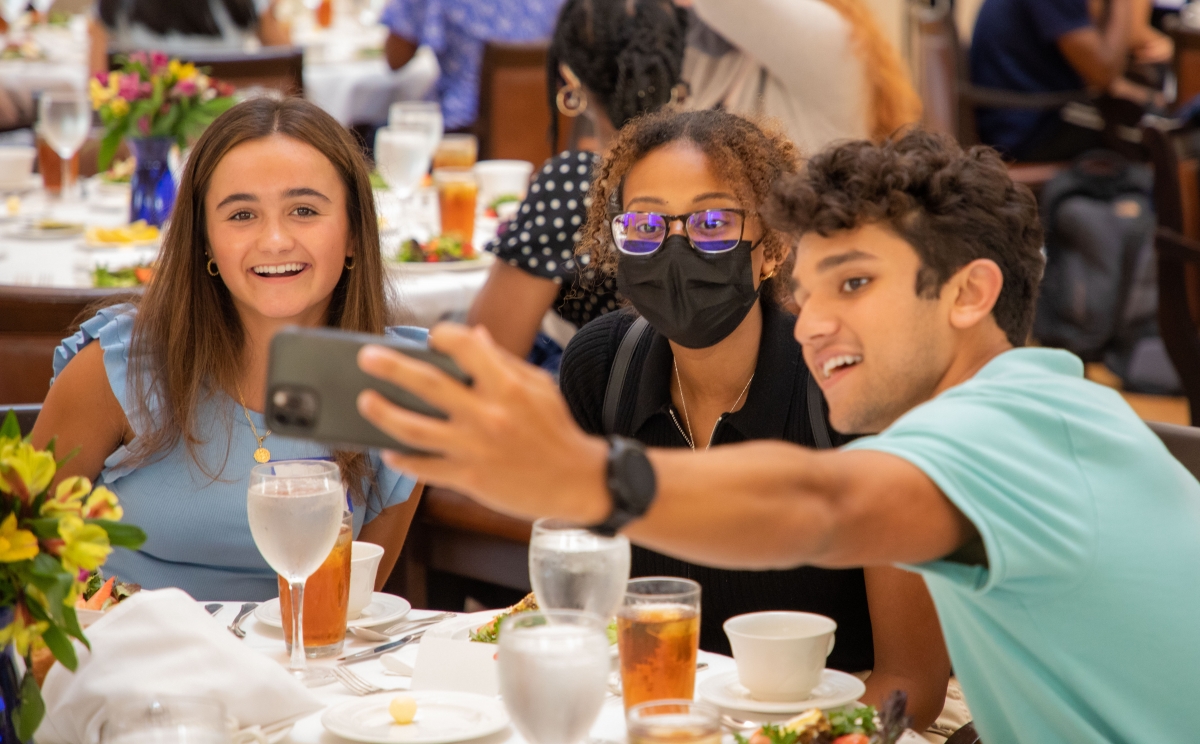 After spending the summer working together online, most CONEX students met for the first time at an awards dinner at the completion of the program.
After spending the summer working together online, most CONEX students met for the first time at an awards dinner at the completion of the program.
Additionally, most students who complete the program go on to earn comparable or higher grades than their peers in both their math and STEM courses at UVA, an outcome Roksa is certain will improve with the help of the philanthropic support the College needs to sustain and expand the program to accommodate every student who could benefit from it.
"We don't have a long-term source of funding for the program,” Roksa added. “The program was going to be a three-year pilot, and this is our third year.”
For Samira Samadi, the experience was overwhelmingly positive. Now a second year, Samadi worked for the program as a coach this summer, helping members of the incoming class of 2025 prepare for their first semester.
“I had such a great experience with CONEX that I wanted to have that same impact on other students,” Samadi said. “It's so fulfilling just being able to see these students make friendships even prior to moving onto Grounds.”

